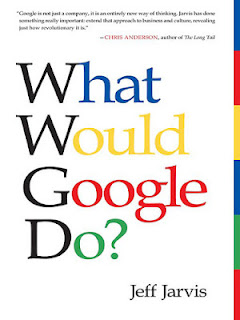J.D. Salinger’s novel, The Catcher in the Rye, is a masterpiece of modern literature, a
coming of age novel that influenced millions of young adults around the world. The
death of Salinger at 91 three years ago this month has prompted some
reflections on the author’s most famous work, and about the author himself.
At 17, I
read Catcher and was moved by Holden
Caulfield’s pessimistic attitude and general disillusionment with the world.
Here was a fictional character that understood the fears and anxieties of
growing up in a world full of contradictions and phoniness. The novel spoke to
me on many levels, as no other novel had before.
A year before
Salinger’s death, I re-read Catcher and
had a much different reaction to it than I did as a teenager. This time around,
Holden comes across as confused and mistrustful. Who could blame him? His
parents had withdrawn from him emotionally after the death of Holden’s brother.
They sent him away to a private school, where he felt abandoned. A teacher at school makes a pass at him (or so Holden thinks), at a time when young
Holden desperately needs reassurance in his life.
With the
benefit of 30-plus years and maturity behind me, I found myself pitying Holden, rather
than identifying with him. This is a teenager who has some serious issues and
needs professional help, but his method of coping (although amusing in fiction)
is to remove himself from life and criticize everyone and everything that he
doesn’t agree with or understand.
Holden’s central themes in Catcher – adults aren’t to be trusted, running
away from problems, avoiding contact with people –
are exactly the wrong messages that young people need to hear. Teenagers and young adults
need encouragement, feedback and involvement. They need to engage with the
world, not run away from it.
As for
Salinger, the author, he walked away from fame at the height of his
popularity; he hasn’t published anything since 1965. The publishing world has been
obsessing over his silence ever since. The author’s reclusive lifestyle seems
to have been an extension of Holden Caulfied’s; in other words, when the going
gets rough, walk away. Salinger apparently felt like a circus clown in
promoting his work, and so he chose a life of self-imposed exile from the world
of letters.
In Salinger’s case, he could afford to walk
away from publishing, but this decision always struck me as odd. Writers are,
by their very nature, introverted and prone to isolation. They spend most of their time alone,
away from crowds. But you’d think that going on book tours and meeting fans
would be a welcome relief from the solitary nature of the writing profession.
The work
Salinger left behind is what’s important, though. The Catcher in the Rye, along with a handful of excellent short
stories, will be read for generations. Salinger was a gifted writer who
understood the struggles and frustrations associated with becoming an adult.
As for that
pile of unpublished manuscripts that Salinger is rumoured to have left behind,
who knows if it’s true. If he did leave a few novels in a safe, and his estate
allows them to be published, there’s no guarantee that they are any good. Perhaps
Salinger had nothing left to say, as Tom Wolfe (The Right Stuff, Bonfire of the Vanities) suggested in an Esquire article published in the
1980s.
In any case,
the Salinger story seems far from over. But my message to young readers is that
engagement with the world is better than giving up on it. It’s easy to become
disillusioned when things aren’t going your way. It’s much harder to put your difficulties
aside and press on with confidence and hope.
Readers
should not look to Caulfield (or to Salinger) for life lessons. Read and enjoy
Salinger’s works, but don’t pattern your life after him or his fictional alter
ego.










